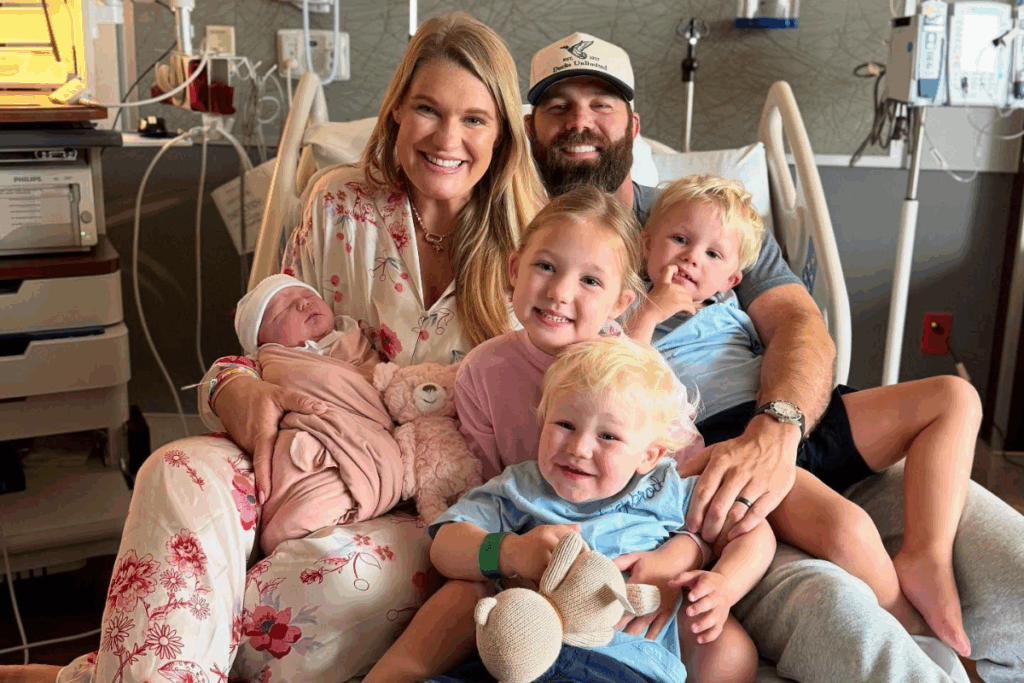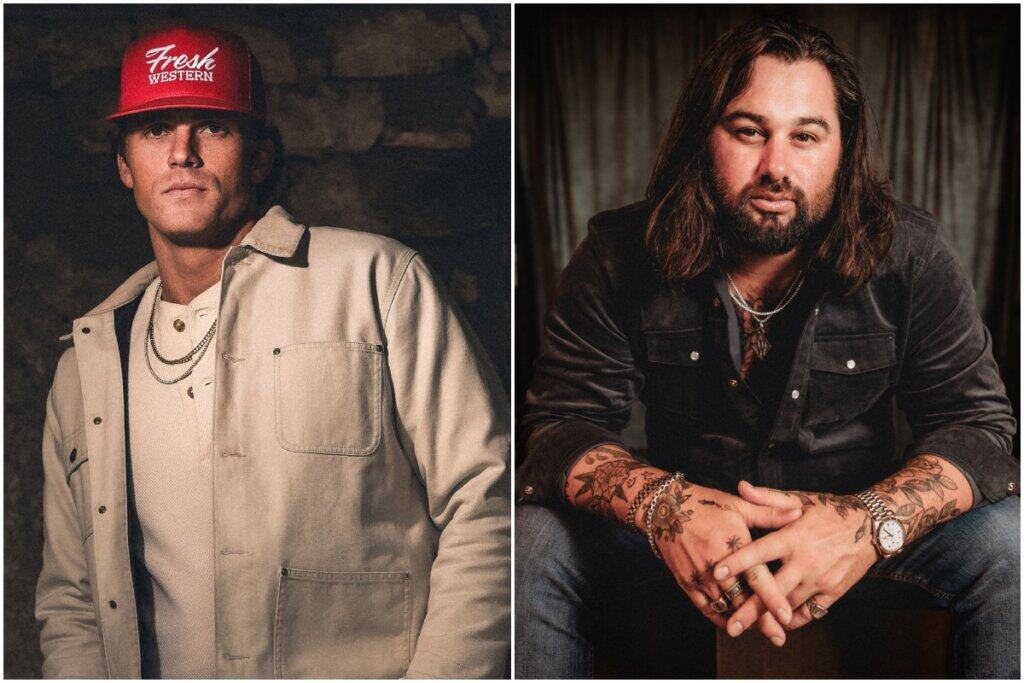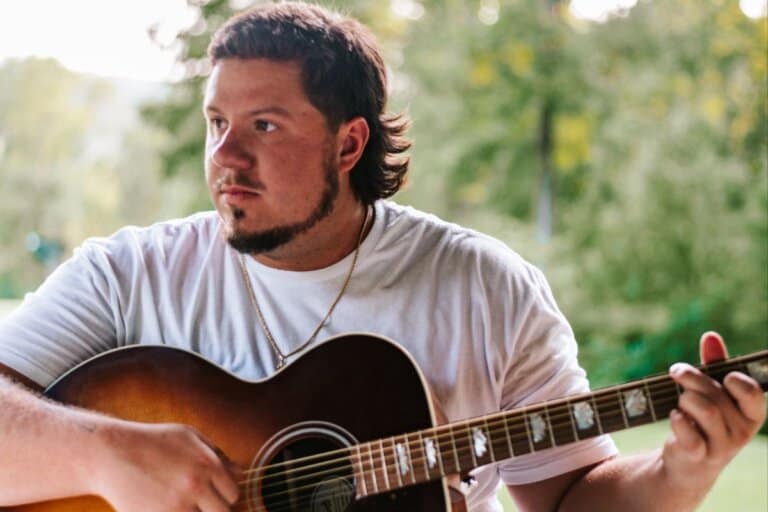Randy Houser Redefines Success On ‘Magnolia’
Not many artists would create an entire full-length movie to go along with a new record. Then again, Randy Houser…

Randy Houser; Photo by Tatiana Houser
Not many artists would create an entire full-length movie to go along with a new record. Then again, Randy Houser is not many artists, and his 2019 offering, Magnolia (as well as its eponymous, accompanying film) is no ordinary album.
“The birth of the film was basically because I hate making music videos,” Houser explains to Country Now. “I don’t like trying to take different songs from an album and creating a different story around each song to convey that idea. I wanted it to come as a whole, just like the album. That was sort of the reason that we put time into writing a script and a congruent idea, something that reflected the music in a way that felt like what I wanted it to feel like.”
An actor plays the film’s protagonist, an oil rig worker who grapples with his father’s failing health and a tumultuous romantic relationship. Houser appears as a bartender and musician, as well as providing the soundtrack that serves as the project’s backbone. Clearly, Magnolia doesn’t tell the singer’s story in a literal sense, although it does take place in his home state of Mississippi, and its themes speak more broadly to the emotional journey that led him to and through the record-making process.

Few of Magnolia’s songs express that journey as succinctly as “No Stone Unturned,” its second single. “I actually wanted it to be the first single off the album,” Houser interjects. “It is about [touring, and being a traveler through life generally], but it’s also about, you know, that expression of living no stone unturned. Trying to find something. That’s sort of what the theme of the album — and life — is to me. It’s about the journey that we’re taking in this whole world. We learn something every day, and we find new pieces of ourselves every day. That song sort of reflects all those things to me.”
Just by virtue of how he made it, Magnolia sets Houser apart, but that isn’t the only thing remarkable thing about the project. Here, the singer zeroed in on making music that feeds his soul — so much so that he co-wrote and co-produced every track, played all the guitar parts himself and footed all recording costs. He wasn’t sure that his label would support the new direction (they did, in fact). Plenty of artists make introspective, meaty, trend-bucking projects. Houser is one of the few who does, but also has multiple country radio No. 1s in his catalogue.
A little bit of context: Before Magnolia, Houser had four studio albums under his belt, dating back to 2008. He’d always had a bluesy edge and a showstopping voice, and he won a large fanbase with heart-pounding chart-toppers like “How Country Feels” and “Runnin’ Outta Moonlight.” The songs brought him fame and financial success but left his soul unsatisfied. In 2016, he stripped away all the flashy production that his music employed in the past and immersed himself in songwriting, determined to follow his heart instead of the trends that he’d already found out would yield him mainstream success.
Actually, making Magnolia may have changed — or at least, clarified — Houser’s definition of “success.” “That’s what success is to me, is knowing that I can walk away from something and be proud of it,” he relates. “Money and huge sales and all that do not define success for me anymore. Because I know what that feels like. That’s all good stuff, but if you’re walking away with something that’s a huge hit and all, but it’s not necessarily something that your heart wants to do? That’s not success to me.”
Houser admits it can still be a little hard to see Magnolia not get the level of country airplay he’s had in the past. “I mean, you want people to love something that you created and put so much heart into,” he says. “But I think my expectations going into it were that that stuff may not be there. You know, it’s hard, but that’s reality, and I knew it.
“I could’ve gone out and picked the best songs that fit in every category, every checklist [item] that needs to be ticked off in order to have a quote-unquote successful Nashville career. But I’ve been there,” he continues. “And I still would love that, but I would like to have it under terms that I can sleep with.”
Now that he’s made Magnolia, Houser explains, he’ll never again sacrifice making music he’s passionate about for mainstream success. “I just won’t let that happen to me again. I couldn’t stand it,” he relates. “I think that in my life here on out — I decided a while back that I’m gonna make music that I love.”
The singer goes on to say that he wishes more country projects bucked the mainstream. “Sadly, a lot of times when I turn on my radio, I hear the same thing over and over. I think a lot of the artists out there are, for one reason or another, just following suit,” he muses. Still, he doesn’t fault the up-and-coming artists who chase radio success at the expense of making art they love. He gets it — more than most.
“Whenever you’re young, and you come to this town, and all you wanna do is be able to do what you love for a living — you’re susceptible to people telling you, ‘If you can do this, I can do this for you.’ You know, that happens,” he points out. “You end up in this perpetual wheel, going around and around, to the point where you never actually get to flex your creative muscle. And so I always wanna encourage young artists to find what it is about them that’s unique, and come here with that, and try not to let them take it from you.”
Magnolia felt like such a Herculean, cathartic effort for Houser that he has trouble wrapping his mind around the concept of his next album. As far as what his next project will be about, the singer says he doesn’t really know yet — he’s waiting for the music to show him.
“Like, that happened with me with this album. I wrote ‘Our Hearts,’ and that was the song that told me what the album was,” he explains. “I sort of rely on that to happen again. I’ll start writing, and I’ll find that thing, that sound, that appeals to me. It’ll tell me what the next [album]’s gonna be. Kinda crazy. But until I do that, until I write that song, I don’t know.”








